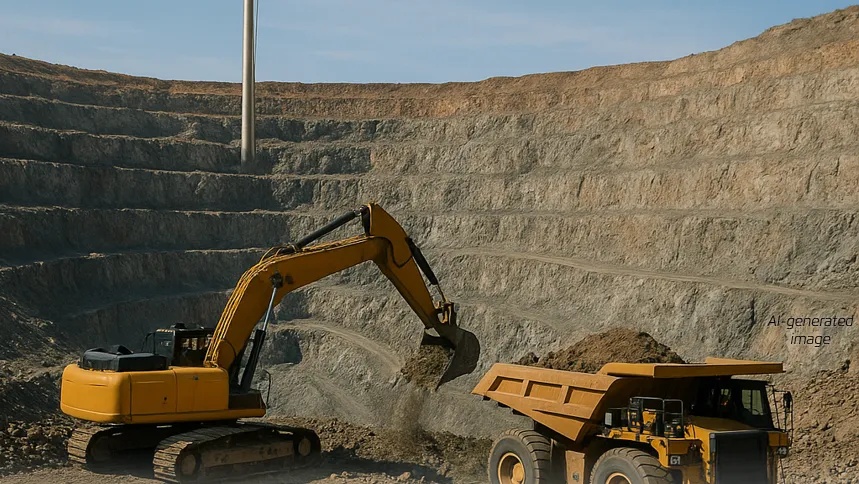Botswana Re-Opens Tataki Mine, Driving Jobs and Growth

Botswana reopens Tataki Mine, creating 3,000+ jobs and boosting nickel and copper output in a major step toward sustainable industrial revival.
The Tataki Mine, formerly known as Tati Nickel Mine, has officially reopened in Botswana under the leadership of President Duma Boko, marking a defining moment in the nation’s efforts to revive its industrial base and stimulate inclusive economic growth. The reopening represents a strategic move to transform Botswana’s mining landscape “from talk to action,” underscoring the government’s renewed focus on operationalizing dormant assets and expanding the country’s mineral value chain. Situated in the North East District, the revitalized polymetallic operation will extract nickel, copper, and associated minerals, key inputs for the global energy transition, thereby positioning Botswana as a competitive and forward-looking mining hub in southern Africa.
The recommissioning of the Tataki Mine is expected to generate approximately 400 direct jobs and more than 3,000 indirect employment opportunities, providing a substantial boost to local livelihoods and regional economic activity. In a progressive move, the government has also established a minimum wage of P4,000 for mine workers, aimed at ensuring fair compensation and decent working conditions across the workforce. As part of the mine’s modernization strategy, advanced mining and processing technologies will be introduced to improve efficiency, environmental performance, and ore recovery. This technological shift is expected to increase the demand for skilled professionals, highlighting the importance of technical training, vocational education, and knowledge transfer in supporting sustainable industrial growth.
The Minister of Minerals and Energy, Bogolo Joy Kenewendo, emphasized the government’s commitment to ensuring that the reopening of Tataki benefits surrounding communities and contributes to long-term socio-economic upliftment. A key component of this vision is the introduction of a supplier development program, designed to empower local businesses by integrating them into the mine’s procurement and service networks. This approach aligns with Botswana’s broader goal of inclusive participation in the mining value chain, ensuring that small and medium enterprises (SMEs) gain access to opportunities traditionally dominated by larger players.
From an investment perspective, the reopening of the Tataki Mine sends a clear signal of Botswana’s investor-friendly policy direction. By restoring confidence in the viability of local mining operations, the government aims to attract additional strategic investments across the mineral sector. With global demand for critical metals such as nickel and copper on the rise, Tataki’s successful reactivation could serve as a model for rehabilitating other dormant assets within Botswana’s mineral portfolio.
In the broader context, the reopening of the Tataki Mine symbolizes more than an industrial revival, it embodies a holistic approach to sustainable development, combining economic opportunity, community empowerment, and technological innovation. As operations ramp up, Tataki is poised to become a cornerstone of Botswana’s mining resurgence, driving job creation, fostering skills development, and reinforcing the nation’s role as a responsible and competitive participant in Africa’s evolving resource economy.
Mini-Glossary
- Polymetallic Operation: A mining operation that extracts multiple metals, such as nickel, copper, and cobalt, from the same ore body.
- Value Chain: The full sequence of activities involved in producing and delivering a product, from extraction to processing and distribution.
- Supplier Development Program: An initiative aimed at strengthening the capacity and competitiveness of local businesses to supply goods and services to large industries.
- Investor-Friendly Environment: Policies and conditions that make a country attractive to investors, including regulatory stability, infrastructure, and incentives.
- Critical Metals: Minerals essential to modern technologies and the green energy transition, such as nickel, lithium, and copper.
- Inclusive Participation: Ensuring that local communities and small enterprises benefit economically from industrial projects.
